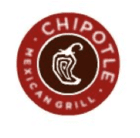According to consumer-research company Mintel, the number of vegetarian restaurants has doubled since 2000, and that number includes more upscale meatless locations than previously. VegDining reports this total now hovers in the 1,000 to 1,200 range and includes spots such as Candle 79 in New York, Sublime in Fort Lauderdale, Fla., and Horizons in Philadelphia.

Midscale and Upscale
Vegetarians can also look to midscale restaurant chains to find lunch and dinner options they can be happy with. Last fall, Chipotle Mexican Grill tested a new vegan protein called Garden Blend, which the chain used in their burrito, taco and bowl items. The blend is made up of plant protein, grains and vegetables marinated in adobo sauce and grilled. There is no word yet on when a national roll-out may take place.

Chutney Joe’s may just be the first Indian-themed regional chain to breakout nationwide. The concept boasts ‘Authentic, slow-cooked Indian food. Served fast,’ and its goal is to repair the impression American consumers have of Indian food and to demonstrate to them what it should be. The menu is vegan-friendly and does not use ghee (clarified butter) or cream, nor are items deep-fried. While carnivores may order Indian classics such as Chicken Tikka Masala or Pork Vindaloo, there are as many, if not more, vegetarian options to choose from such as Red Bean Rajma, Spinach Paneer, Garbanzo Masala and Daal. Located in Chicago’s Loop, owners hope to add two more units downtown before bringing the concept to other U.S. cities.
Located in Chicago’s Loop, owners hope to add two more units downtown before bringing the concept to other U.S. cities.
Candle 79 and its sister casual dining spot, Candle Café are two of New York City’s vegetarian dining hot spots. The café opened in 1994 on the city’s Upper East Side and was the first Certified Green Restaurantâ„¢ in NYC by the Green Restaurant Association. Candle 79 is a mere five blocks away, but the vegan and organic cuisine that made the reputation of the café is offered in a sophisticated and more upscale setting.

Vegetarian for Nearly 40 Years
Moosewood Restaurant in Ithaca, NY, is one of the grande dames of vegetarian restaurants. Opened in 1973 by Mollie Katzen and other members of the Moosewood Collective, the menu emphasizes healthful, natural cuisine. It was named one of the thirteen most influential restaurants of the 20th century by Bon Appétit magazine. Menus are developed using fresh produce – organic whenever possible – and whole grains, beans and soy. The collective has authored eleven cookbooks and now also offers a line of salad dressings for retail sale at natural food stores and supermarkets.

Otarian Carbon-Friendly Vegetarian Dining is the latest addition to the New York vegetarian scene. Founder Radhika Oswal describes herself as a “hungry vegetarian” and developed the concept after being frustrated to find only “pizza and French fries” while traveling. The inventive menu lists a variety of salads, flatbreads and wraps as well as ‘hearties’ – entrees ranging from vegetable lasagna, spicy coconut curry and vegetable biryani. ‘Obsessions,’ aka their desserts, features items such as egg-free chocolate mousse. There is also a Portobello mushroom burger and soups, such as curried apple and parsnip.

Inviting interior of Otarian
Otarian also encourages diners to eat in an eco-conscious and sustainable way. The staff is also trained to label each sandwich and combo meal with its carbon number and the carbon number of a similar meat dish, so diners can see how much they’ve offset by choosing the vegetarian option.
In addition, almost everything in the restaurant is made from sustainable materials, from the flooring to the tabletops. The fabric on the banquettes is made from 100% post-consumer recycled yarns, and the ceiling panels are 100% recycled aluminum. Otarian’s original location is on Bleeker Street in New York, and a second just opened on Columbus Circle at 8th Ave and 56th St. in time for Earth Day.


